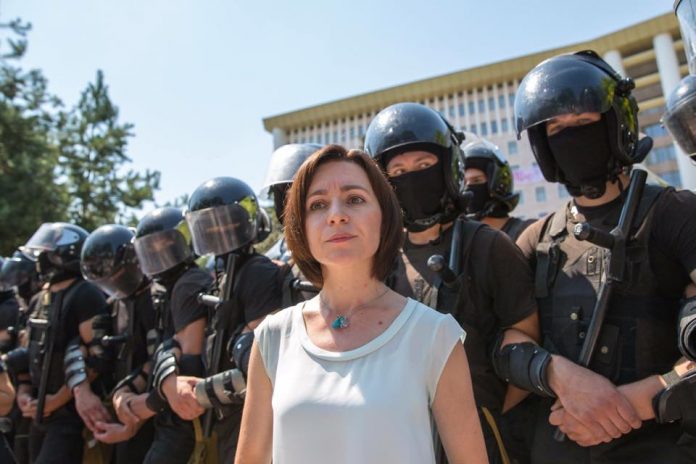Moldova’s opposition party Action and Solidarity Party (PAS) and its partners Dignity and Truth Platform Party (PDA) have accused the ruling Democratic Party (PDM) of systematic harassment.
On October 12, Gheorghe Petic (a former border police officer), who heads of PDA branch in the region of Ungheni, was arrested on allegations of rape. The arrest came just days after he had accused the interior minister of covering up cross-border smuggling.
Petic was detained 20 days, during which he complained about inhumane conditions, calling the prosecution politically motivated.
Back in August, Ruslan Verbiţchi, who heads the PDA branch in Riscani district of Chisinau, had also been detained by Ukrainian border police. They reportedly found 60 Kalashnikov bullets under his car as he was entering Ukraine after passing Moldovan customs inspection without problems.
With little evidence to go on, Ukrainian judges initially placed Verbiţchi under house arrest in a rented apartment in Ukraine before letting him return home to Moldova to await trial.
On the PAS side, no arrests have been made, but the head of PAS branch in Ungheni was recently fired from his job at the regional department of education. Also, the head of PAS branch in Riscani distinct of Chisinau found his house burglarised on September 30, the day of a protest rally in the north of the country.
The same PAS member had been invited to the local police station two weeks prior to the burglary to explain allegations of a pro-government blogger, who had falsely alleged that the PAS activist was carrying a gun during the peaceful opposition protests on August 26.
October 4, the ruling majority in parliament, controlled by the Democratic Party, opened an inquiry into the alleged ties between Maia Sandu and Andrei Nastase and the Polish based Open Dialog Foundation led by Ludmila Kozlowska (recently deported from Poland).
Maia Sandu explained that she had attended an event at the European Parliament in May 2017 at the invitation of Anna Fotyga, an MEP from the ruling party in Poland who criticised the anti-democratic record of the ruling party in Moldova.
Later, even the Polish Ambassador to Moldova felt compelled to express regret about the defamation campaign launched by the Democratic Party against the pro-EU opposition, using ODF’s case to smear the Moldovan opposition.
The Democratic Party driven parliamentary inquiry is set to produce a report by November 3 and there is a risk that the tickets from Chisinau to Brussels paid by Open Dialog could be used by the ruling majority to set a dangerous precedent to deny PAS leadership the chance of attending events abroad funded by its international partners, such as the political foundations of their EPP sister parties. But they rely on international travel, given the party’s budgetary and fundraising constraints.
In the worst scenario, PAS could be banned from elections on charges of foreign funding, despite Article 36 (2) of the electoral code that explicitly allows such open and transparent support aimed at promoting democratic values. In fact, PDM also benefits from such support, not to mention the millions they spend on lobbying, but also indirect funding of PDM interests and activities abroad paid by Vaja Jhashi – controversial businessman and friend of Vladimir Plahotniuc.
Moreover, PDM is considering regulating social media, where PAS and PDA have a competitive advantage. The Socialists are backing PDM’s proposal. This is yet another encroachment on the few liberties left standing in Moldova, recently designated as a captured state in an EU Parliament Foreign Affairs Committee report.
Meanwhile, pressure on independent media is also growing as TV8 and JurnalTV have recently been banned from ruling party briefings. Most alarmingly, the criminalisation of journalists has returned to the fore.

